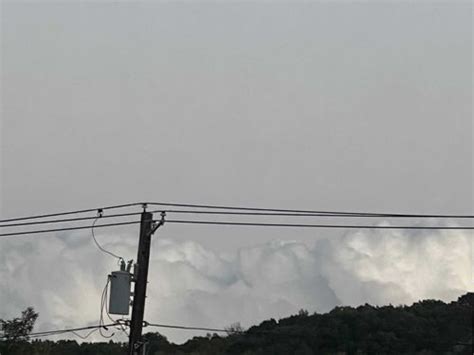7 Essential Tips for Mastering Nude Drawing Techniques

Introduction
Nude drawing is a timeless art form that demands precision, sensitivity, and a deep understanding of human anatomy. Whether you’re a beginner or an experienced artist, mastering nude drawing techniques requires practice, patience, and a willingness to explore the intricacies of the human form. This guide provides seven essential tips to elevate your skills, blending technical advice with artistic insight to help you create compelling and respectful depictions of the human body.
1. Study Human Anatomy: The Foundation of Nude Drawing

Mastering nude drawing begins with a solid understanding of human anatomy. The human body is a complex structure of bones, muscles, and proportions that dictate its movement and form.
- Study Skeletal Structure: Familiarize yourself with the skeleton, focusing on key landmarks like the pelvis, ribcage, and joints.
- Learn Muscle Groups: Understand how muscles attach to bones and affect surface contours.
- Practice Gesture Drawing: Capture the flow of movement with quick, loose sketches to internalize proportions.
2. Master Proportions: The Golden Ratio in Nude Drawing

Proportions are critical in nude drawing, as they determine the balance and harmony of your artwork. The human body adheres to the “Golden Ratio,” a mathematical concept often found in nature and art.
- Overly elongated limbs – Measure carefully using the head as a unit of measurement.
- Misaligned hips and shoulders – Use guidelines to ensure symmetry.
| Body Part | Proportional Guideline |
|---|---|
| Head | 1 head length equals the distance from chin to hairline |
| Torso | Approximately 2.5 head lengths from shoulders to hips |
| Legs | 4 head lengths from hips to feet |

3. Observe Lighting and Shading: Bringing Depth to Your Drawings
Lighting and shading are essential for creating three-dimensionality in nude drawings. The interplay of light and shadow defines the form and adds emotional depth.
- Highlighting: Use lighter tones to emphasize areas where light directly hits the body.
- Shadowing: Apply darker tones to areas in shadow, blending smoothly for a natural effect.
- Mid-Tones: Add mid-tones to transition between highlights and shadows, creating depth.
4. Embrace Diversity: Celebrating the Unique Human Form
The human body comes in countless shapes, sizes, and ages. Embracing this diversity in your drawings not only improves your skills but also fosters inclusivity and respect.
"Every body tells a story. As artists, it’s our responsibility to honor that story with authenticity and care." – Elena Marquez, Art Educator
5. Develop a Personal Style: Beyond Technical Mastery

While technical skills are crucial, developing a personal style sets your work apart. Experiment with different mediums, techniques, and perspectives to find your artistic voice.
- Experiment with Mediums: Try charcoal, pastels, or ink to see how they influence your approach.
- Play with Perspective: Explore unusual angles or dynamic poses to add interest.
- Focus on Emotion: Use line weight and composition to convey mood and narrative.
6. Practice Regularly: The Key to Improvement
Like any skill, nude drawing improves with consistent practice. Dedicate time daily or weekly to sketching, focusing on different aspects of the human form.
- Improved Muscle Memory: Repetition helps your hand execute lines and shapes more naturally.
- Increased Confidence: Regular practice reduces self-doubt and encourages experimentation.
7. Respect the Model: Ethical Considerations in Nude Drawing
Drawing the nude form is a privilege that comes with ethical responsibilities. Always treat models with respect, ensuring they feel comfortable and valued.
- Consent is Key: Obtain explicit permission before drawing or sharing a model’s likeness.
- Maintain Professionalism: Avoid inappropriate comments or behavior during sessions.
- Honor Boundaries: Be mindful of the model’s comfort level and adjust your approach accordingly.
"The relationship between artist and model is built on trust. Without it, the art loses its integrity." – Laura Bennett, Life Drawing Instructor
How can I improve my understanding of human proportions quickly?
+Use the "head measurement" technique, where the height of the figure is divided into 7.5 heads. Practice this method with reference images to internalize the ratios.
What’s the best medium for beginner nude artists?
+Charcoal or graphite pencils are ideal for beginners due to their versatility and ease of use. They allow for quick shading and corrections.
How do I handle awkwardness when drawing nudes?
+Focus on the artistic process rather than the subject’s nudity. Treat it as any other figure study, emphasizing form and composition.
Can I draw nudes without a live model?
+Yes, use high-quality reference photos or anatomical studies. However, live models provide dynamic poses and lighting conditions that photos may lack.
How do I add emotion to my nude drawings?
+Focus on the model’s posture, facial expression, and gesture. Use line weight and shading to emphasize tension, relaxation, or vulnerability.
Conclusion
Mastering nude drawing techniques is a journey that combines technical skill, artistic sensitivity, and ethical awareness. By studying anatomy, embracing diversity, and practicing regularly, you can create powerful and respectful depictions of the human form. Remember, every stroke of your pencil is an opportunity to celebrate the beauty and complexity of humanity. Keep drawing, keep learning, and let your unique voice shine through.

